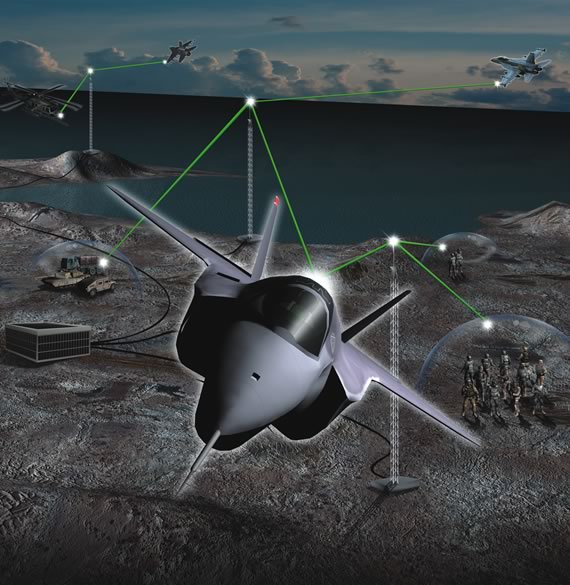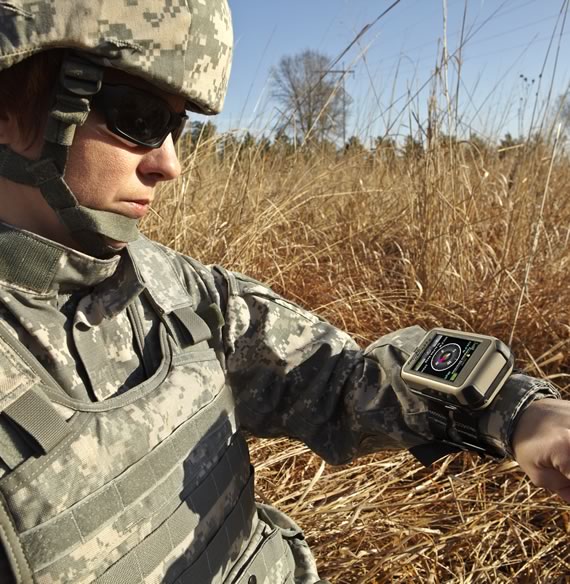Poised for Tomorrow
Learn more about how we continue to identify new ways to serve our customers and drive future growth in both core and adjacent markets.



Ascend Network Operations Center (NOC)

Pro Line Fusion integrated avionics system

Surface to air range instrumentation

MicroDAGR handheld receiver
 Sasha Marsee
Senior Customer Service Associate
Houston, Texas
Sasha Marsee
Senior Customer Service Associate
Houston, Texas
Harnessing the power of information
In today’s cost conscious and competitive business environment, time is money. Yet, flying corporate executives and VIPs to their destinations involves complex processes. Internal flight departments struggle to research, assimilate and coordinate all aspects of a flight, including trip planning, database management and passenger connectivity. Significant opportunities arise to streamline the information flow and connect aircraft to supporting ground systems.
To address these challenges, we introduced Ascend™ flight information solutions, a globally available suite of flight support, cabin services and maintenance operations designed to meet the evolving needs of flight departments and passengers alike.
“These days, flight department personnel have enough to worry about without having to manage multiple providers and multiple invoices for each trip. Ascend provides business aircraft operators the first integrated solution to take the complexity out of flight operations,” says Senior Customer Service Associate Sasha Marsee. Ascend allows them to more easily schedule and plan trips, ensure the cabin is configured to passengers’ needs and manage routine aircraft maintenance and support, like uploading databases. This way they’re free to focus on other aspects of their job.”
 Clay Lindwall
Senior Director, Avionics Programs Engineering
Cedar Rapids, Iowa
Clay Lindwall
Senior Director, Avionics Programs Engineering
Cedar Rapids, Iowa
Gaining worldwide market share
With Rockwell Collins Pro Line Fusion™ integrated avionics system, business and commercial aircraft pilots have access to capabilities never available before in a flight deck, enhancing safety, ease of use and cost-effectiveness. Customers around the globe have taken notice.
“Pro Line Fusion combines powerful technologies with a simpler user interface, allowing pilots to fly more safely. When pilots first experience synthetic vision on the head-up display, they often can’t believe they ever flew without it,” says Clay Lindwall, senior director of avionics programs engineering. But it isn’t just pilots who are impressed by it. “We have won positions for the system with a growing number of international OEMs, including Bombardier (Canada), Embraer (Brazil) and Mitsubishi (Japan). Collaborating with these established and emerging companies is exciting for our engineers and also for the future of Rockwell Collins. By offering customers Pro Line Fusion – a platform designed to handle new features and capabilities – we’re positioned to serve the needs of these OEMs for a long time.”
 Lowell Buchholz
Principal Marketing Manager, Surface Solutions
Cedar Rapids, Iowa
Lowell Buchholz
Principal Marketing Manager, Surface Solutions
Cedar Rapids, Iowa
Expanding our role as a systems integrator
We continue to strengthen our systems integration capabilities by bringing complex and multifaceted solutions together and leading program teams that serve our customers’ needs. One result of this includes the U.S. Air Force down-selecting Rockwell Collins as the prime contractor for phase two of the Common Range Integrated Instrumentation System (CRIIS) program.
“Our range instrumentation system enables the military to precisely track the position and orientation of aircraft and ground vehicles as part of weapons-system evaluation on a test range. A high level of tracking precision is crucial in the testing of aircraft systems’ performance during maneuvers, among other applications,” says Lowell Buchholz, principal marketing manager in surface solutions. “By bringing together our cutting-edge technologies, plus those of our teammates, we’ve been able to measure position within 50 centimeters under high dynamic maneuvers. We also provide the real-time data delivery, multi-level encryption and an open architecture that not only give customers the technological capabilities they need for range testing today, but can be scaled and leveraged into training and other future needs.”
 Matt Bousselot
Senior Electrical Engineer
Cedar Rapids, Iowa
Matt Bousselot
Senior Electrical Engineer
Cedar Rapids, Iowa
Adapting technology for the iPod generation
An engineer’s innovative vision, along with help from his team, creates MicroDAGR – a lightweight, wrist wearable and easy-to-use secure military GPS receiver designed with next generation technology for the dismounted soldier.
“I wanted to help Rockwell Collins do what no other company has yet attempted to do for the military market – to combine secure military GPS capabilities with features you’d typically find on a consumer cell phone,” says Senior Electrical Engineer Matt Bousselot. “Our goal was to create a feature-rich device that is small, intuitive and affordable, with multiple language capability. The result is the MicroDAGR. It has the anti-jamming and anti-spoofing capabilities that the military requires with a full color touch screen display. Any soldier who has used a cell phone will find MicroDAGR immediately familiar. But aside from the ‘cool factor,’ this is serious technology for users whose lives may depend on it. I was a designer on DAGR [Defense Advanced GPS Receiver] as well. A Special Forces guy once told me, ‘This product saved the lives of my buddies and me.’ Those kinds of stories really make me proud of the work I do.”





